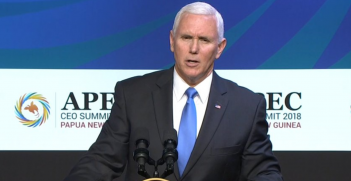The Broad, Substantial Success of the 2019 G20 Osaka Summit

Between 28-29 June, G20 leaders successfully produced substantial achievements on the central trade questions and many development, social, ecological and security issues. But they failed on their greatest challenge: controlling climate change.
At their Osaka Summit on 28-29 June 2019, G20 leaders produced a broad, substantial success. They made several important achievements on the central, controversial issues of trade and meaningful advances on the many development, social, ecological and security issues they addressed. But they failed on their greatest, most critical and costly challenge of controlling climate change.
Trade
Their first achievement came on host Japanese Prime Minister Shinzo Abe’s signature initiative of launching the “Osaka Track” for digital free flow with trust. Almost all G20 leaders, including those of the United States and China, agreed to provide a highest level political push to the plodding e-commerce negotiations at the World Trade Organization (WTO), aiming for substantial progress by June 2030. Although India, South Africa and Indonesia did not join, Indian Prime Minister Narendra Modi personally assured Abe that he would not oppose the launch. It was remarkable that China and Saudi Arabia, with their restrictive, state-controlled approach to international e-commerce and privacy joined the United States and all other G7 members to launch trade liberalization negotiations in the sector that would dominate international trade and the global economy in the years to come.
More broadly, G20 leaders affirmed their belief that open, rules-based international trade is a source of economic growth and that the WTO should be urgently reformed. The G20’s traditional anti-protectionist pledge was not reproduced verbatim yet similar sentiments were clearly expressed in a more proactive way. The consensus on reforming the WTO was more firm and specific than at previous summits. Support for openness was backed by Xi Jinping’s promise to all his G20 colleagues that he would open the Chinese economy to them, take in more imports and provide foreign direct investors a level playing field.
Moreover, for the first time G20 leaders collectively endorsed bilateral and plurilateral trade liberalisation that are consistent with the WTO. Some members immediately put their words into action, with the launch of free trade agreements between the European Union and Mercosur and between the European Union and Vietnam.
The icing on the freer trade cake was the announcement by US President Donald Trump and Chinese President Xi Jinping of a trade truce and resumption of negotiations in their escalating trade war. Unlike their last G20 summit truce, this one was likely to succeed. The US and Chinese economies are slowing. With the US elections approaching, Trump needs to solidify his political base now badly suffering from the trade war. The Chinese leadership’s constant worry about social unrest has been intensified by the mass protests against the Chinese government in Hong Kong.
Sustainable Development
Advances also came on sustainable development, across the 2030 Agenda and several of its 17 Sustainable Development Goals (SDG).
There was agreement on principles for quality infrastructure investment, endorsed openness and transparency in governance and procurement. Its six principles will immediately be put into practice by the World Bank, a permanent G20 member, and then by its regional partners in the BRICS New Development Bank and the China-initiated Asian Infrastructure Investment Bank.
Under a similar agreement on principles for debt transparency and sustainability, lenders and borrowers can now know from the start about the loans and conditions they negotiate. This enables them to assess their affordability and sustainability, to compare them with those on offer elsewhere and thus protect themselves against “debt trap” diplomacy, which harms the poorest countries most.
On universal health coverage (UHC), the G20 highlighted SDG 3 Target 8, encouraging all developing countries to use their own resources to adopt UHC quickly, as a critical driver of their own development. To reinforce the thrust, G20 ministers of health and finance met for the first time on the sidelines just before the summit itself started.
Since the 2014 Brisbane Summit, the G20 had focused its efforts around gender equality on reducing the labour force participation gap between women and men by 25 percent by 2025. At Osaka it added an emphasis on unpaid care work, the digital gender gap, gender-based violence and women’s advancement in the private sector. Yet in mainstreaming gender equality, Osaka fell short of the 2018 Buenos Aires Summit, which had declared this goal as its only overriding principle at the start.
Osaka also started a new G20 agenda on ageing populations and their implications for fiscal, monetary, healthcare and social policies. This proactive, preventive measure was of particular value to the ageing populations of Japan, Korea, China, Italy and Germany but also to those with younger populations inevitably facing similar challenges in future years.
Finance and Economics
One finance and economics, G20 leaders agreed to produce a revolutionary regime by 2020 to ensure that companies pay their fair share of taxes to the countries where their value is created by customers and users, rather than in the country where they claim their headquarters to be. This new regime, no longer based on static, exclusive, sovereign territorial states but on the 21st century world of globalised flows, will help the governments of both poor and rich countries to raise the finances to meet their citizens’ needs.
Security
Since 2001, at the ministerial level, the G20 has discussed security, starting with terrorist finance and then later proliferation finance. At Osaka it adopted an Australian initiative to combat the use of social media for the radicalisation, recruitment, financing and planning of terrorism, whose deadly effects were recently seen in the attacks in Christchurch, New Zealand, and in Sri Lanka.
The Environment and Climate Change
To protect the world’s endangered natural environment, the G20 launched the world’s first global regime to curb plastic and other waste in the world’s oceans. It begins with coordinated G20 government action to define the problem, to gather reliable data on how much plastic and other waste is entering the oceans, to determine from where it comes and to what effect and then to share solutions to reduce and ultimately remove it. G20 leaders also launched the “Osaka Blue Ocean Vision” to reduce additional marine plastic litter pollution to zero by 2050, using a life-cycle approach.
Yet on the greatest environmental challenge — the climate crisis — G20 leaders merely repeated the nineteen-versus-one formula from the year before. Nineteen G20 members said they would implement and later improve the inadequate 2015 Paris Agreement. The United States, in its separate paragraph, repeated its intention to withdraw and extolled its accomplishments in clean energy technology. But no member nation promised any new measures to confront the climate crisis already at hand. The G20 as a whole did repeat its historic commitment from the Pittsburgh Summit in 2009 to phase out inefficient fossil fuel subsidies in the medium term, a commitment they had failed to comply with by its due date in 2014. They added a new condition — “subsidies that encourage wasteful consumption” — that weakened the original commitment. At Osaka, SDG 13 on climate change was unlucky and unloved yet again, even as people have died in the historically high heat in Europe, India and elsewhere.
Leaders will be called upon to do better at the next summits of the G7 at Biarritz, France, on 24–26 August, with democratic Australia and India present, and the four high-level meetings at the United Nations in New York City from 23 to 27 September.
Professor John Kirton is the founder and director of the G20 Research Group based at the Munk School of Global Affairs and Public Policy at Trinity College in the University of Toronto, where he is a professor of political science. His most recent publications include G20 Japan: The 2019 Osaka Summit.
This article is published under a Creative Commons Licence and may be republished with attribution.





